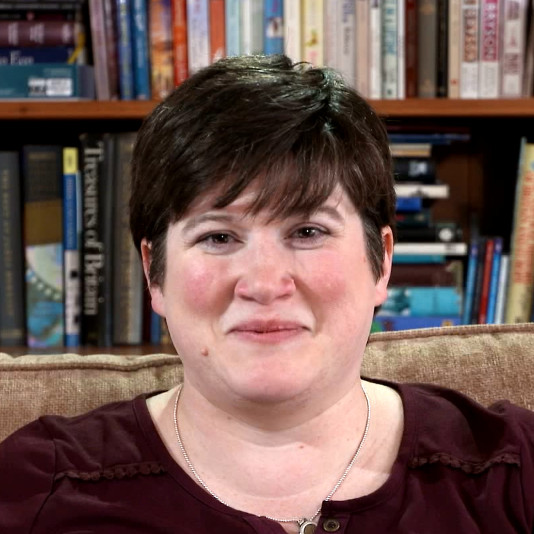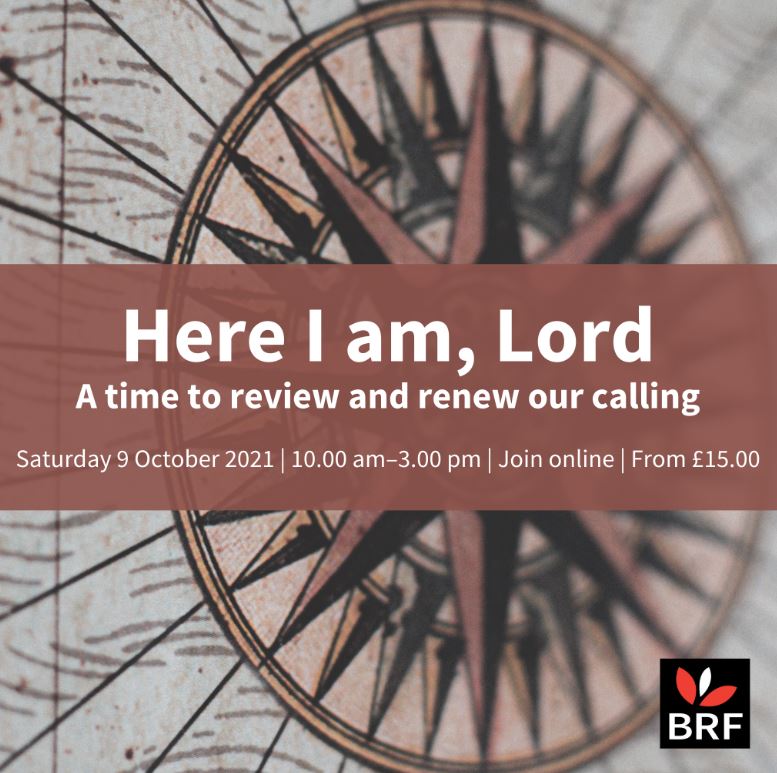Bill Lattimer is principal of The Douglas Trust, a family trust which supports the work of BRF’s Parenting for Faith ministry. In the first of our new series of articles on hearing God’s call, he tells us why this ministry is so important to the Trust and why supporting it is a response to God’s call…
12 September 2021
Looking back, looking forward
There are two things that we’ve learned in the last 10-15 years which have really influenced us.
The first is from the research of Professor David Voas on the Christian population. He found that basically in every generation the number of children growing up to become Christians as adults halves. In other words, if there are two children in a Christian family, on average, only one of them will be a Christian as an adult. So however successful we are at adult evangelism, that makes life very difficult for the church.
The second thing is that research in child psychology shows that children are wonderfully natural spiritual beings, and we feel that if that natural spirituality is not expressed and brought out it tends to wither. The best place to nurture that natural spirituality is in the home. It’s a great opportunity for children to express their spirituality, if parents realise and understand how important it is to encourage that.
‘In every generation the number of children growing up to become Christians as adults halves.’
My wife still has a leaflet which was given to her parents when she was christened in the 1950s. It was produced by a denomination in the US and is entitled, ‘Parents: first teachers of religion.’ In the 1950s people understood that the home was the place where children were introduced to Jesus.
But somehow in the intervening period, we’ve lost that. There are still many parents who realise how important it is to introduce children to faith in the home, but in general we’ve lost that understanding that the home is such an important place for children to come to know God.
‘Children are wonderfully natural spiritual beings.’
Why has that happened?
I think it’s partly to do with the way faith and religion have been professionalised, along with everything else. It’s tempting for parents to think that school is where my child is taught maths and church or Sunday school is where my child is taught about Jesus, but actually we teach our children how to brush their teeth at home and how to cross the road safely. Many of us have somehow forgotten how vital this is because children spend so much more time at home than they ever do in church.
Do you think that’s a result of the parents’ generation losing confidence in their faith?
Yes, I think it’s partly to do with secularisation. And the research shows that some parents feel it’s wrong to indoctrinate their children and that they should bring them up in some kind of neutral space and let them make up their own minds when they’re older.
But there is no such thing as a neutral space, and it’s the most natural thing in the world for children to be brought up in the faith of their parents.
‘It’s the most natural thing in the world for children to be brought up in the faith of their parents.’
What is the Trust’s vision for the initiatives it has supported?
At its simplest, we want to reverse the decline in the number of people who see the home as the primary place where our children first meet with God. If we can reverse that decline, we’ll help families to enable in their children a faith which really lasts – through those difficult teenage years and through the young adult years, into mature adulthood.
It’s so important that children experience God when they’re young, because an experience is something you can look back on and something which will affect you deeply. One of the things about Parenting for Faith is its emphasis not just on knowing about God – getting the right answers to questions – but on knowing God.
‘Parenting for Faith emphasises not just knowing about God, but knowing God.’
You seem to have a powerful sense of both vision and vocation for this work.
We’re not the first people to have that vision but, for whatever reason, the Trust seems to specialise in quite difficult problems, and in seeking solutions which might not be the first thing you’d think about.
If you talk to a church leader, the first thing they might think about is growing their congregation, evangelism, having really good worship and getting more children into church. But they haven’t necessarily been thinking about what happens in the home, because it doesn’t affect what happens in church so much. That’s a mistake because, over time, what happens in the home greatly affects what happens in church. If churches can get better at realising this, a whole generation of children will grow up who do know God for themselves and who will sustain their faith through those teenage and young adult years. It’ll make a massive difference to the church in the long term.
How do you measure that? How do you know that what you’re doing is effective?
Obviously, it’s a long-term project. One of the reasons I said we specialise in difficult problems is because what we’re doing is very, very long term. What we’re about is changing culture – Christian culture and church culture – and changing culture is one of the most difficult things you can do. It takes ten, twenty years. So we’re in it for the long haul, and we want to look at the extent to which children are being discipled in their families.
‘Discipling’ is a bit of buzz word, but what we want to discover is how children are learning about God and encouraged to know God for themselves. We can look at simple measurements, like how many people buy Parenting for Faith books, sign up for the courses, or log on to the website. Those figures are good, and we get lots and lots of lovely comments from people who have been moved by and changed by the resources, but ultimately it’s how church culture changes. There has been some evaluation done on the impact of Parenting for Faith, which is, so far, positive, but we’re keeping a close eye on that and it’s a long, long-term work.
‘What we’re about is changing culture, and changing culture is one of them most difficult things you can ever do.’
What would you say to people who might be thinking of supporting the work of Parenting for Faith?
First, if they agree that this is absolutely vital, strategic work, then support it. If we do not bring our children up in the faith of Christ, although nothing is ever hopeless under God, the future of the church looks difficult, to put it no more strongly than that. So this is absolutely vital work that needs to be supported.
Second, it’s clear from the evaluation we’ve done on the impact of Parenting for Faith that it’s working. So, the more we can do, the more we can get the word out, the more courses and events, the more online material, the more podcasts, the more books we can get out there, then the more we will, eventually, change the culture.
Getting these great resources out to as many people as possible costs money, but I believe there’s a great payback on that investment for the future of the church.

Equipping parents to raise God-connected children and teens
This flourishing ministry helps parents spiritually nurture children and teens to have a lasting, vibrant two-way relationship with God. Through a groundbreaking course, events and training, resources and a thriving social media community, we…
- help thousands of parents and carers to grow in confidence and skill
- enable church workers to create communities that support them
- support church leaders who are parents themselves.

Rachel Turner is the Parenting for Faith pioneer at BRF. God gave her the vision for Parenting for Faith in 2005 in response to a need in her local church, and it has grown from there.

If you’re interested in exploring your own sense of God’s calling, you might like to join our online one-day conference ‘Here I am, Lord’ on 9 October.
